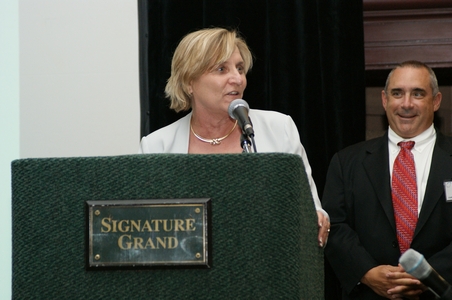The 400+ participants at the South Florida Hospital and Healthcare Association’s (SFHHA) fifth annual “Health Reform’s Solutions for South Florida’s Healthcare System” left with much to think about.
“The two-day session delivered insights and provided a tremendous opportunity to hear speakers representing the healthcare marketplace talk about the impact of health reform on their respective segments of the industry,” said Nancy Borkowski, director, Healthcare Management Programs in the Chapman Graduate School of Business at Florida International University (FIU).

Topics spanned Health IT, patient safety and the Patient Safety Organization of Florida (PSOFlorida), workforce education and development, viability of public hospitals, future facilities, healthcare fraud, and reimbursement and revenue cycle management.
Joyce J. Elam, executive dean of the College of Business Administration, welcomed the attendees during the opening activities. She noted the business school’s commitment to provide learning opportunities for South Florida’s healthcare community to better understand how the nation’s reform efforts will affect the delivery of health services to the residents of Miami-Dade and Broward counties.

One of the key contributions the college makes is offering its Healthcare MBA, designed to give students the ability to put the pieces of the complex healthcare puzzle together. Another is hosting or sponsoring community events of interest to those in this important sector of South Florida’s economy. For example, the Healthcare MBA program was the presenting sponsor for the SFHHA summit and FIU Business recently hosted a CFO Roundtable for 150 executives, alumni and students.

Opening with a plenary session on day two of the summit, four distinguished panelists—Brian Agnew, director for economic and policy analysis, Pfizer; Ed Hannum, president and COO, AvMed Health Plans; Ashley Thompson, director of policy, American Hospital Association; and Cecil Wilson, MD, president-elect, American Medical Association—discussed common areas of agreement and compromise with the health reform legislation and also areas of disagreement and doubt.




